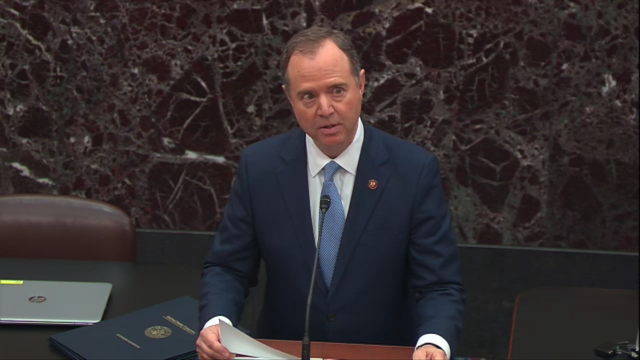Tennessee Republican Senator Marsha Blackburn has suggested that top Democrats, including California Rep. Adam Schiff, are apprehensive about Kash Patel potentially being appointed FBI Director due to his extensive knowledge of their involvement in the so-called “Russia collusion” narrative that shadowed former President Donald Trump’s first term.
Speaking with Fox News host Charlie Hurt, Blackburn said Patel’s insider knowledge poses a serious threat to those who helped push allegations of collusion between Trump’s 2016 campaign and Moscow. “I think, too, they are very fearful of Kash Patel because Kash Patel knows what Adam Schiff and some of the others did with Russia collusion,” Blackburn said. “They know that he knows the dirt on them, if you will, and I think they’re fearful of what he’s going to do, what he’s going to reveal, and what he’s going to make known to the American people.”
Hurt highlighted Patel’s commitment to transparency and accountability in Washington, a point Blackburn readily agreed with. “They recognize that one thing Kash Patel is very devoted to is bringing transparency to what’s going on in Washington,” Hurt said.
The conversation expanded to other Trump nominees, particularly Robert F. Kennedy Jr., expected to lead the Department of Health and Human Services (HHS), and former Democratic Rep. Tulsi Gabbard, who has diverged from her party on numerous issues. Hurt asked whether Democrats might retaliate against these figures for aligning with Trump.
“Because I think you’re right,” Hurt said. “One of the things that really, really enrages them is that these are former Democrats, and they feel like they have to—it just drives them crazy that these are Democrats who found a way to work on common-sense solutions with President Trump.”
Blackburn agreed, arguing that political retribution is already in motion. “You’re exactly right about that,” she replied. “It does make them angry, and so they’re wanting to punish them. The way they can punish them is to withhold their vote or slow down their nomination.”
The Tennessee senator also expressed confidence in Kennedy’s performance as HHS Secretary. “RFK Jr. is going to do a great job at HHS,” Blackburn said. “He’s going to help us find these 300,000 children. I’ve been trying to find these kids since it was 75,000, and the Biden administration has never responded to where these children are. RFK is going to get in there, rework CMS with Dr. [Mehmet] Oz, and work with [Dr.] Marty Makary to straighten out the FDA. He’s going to work with Dr. [Jay] Bhattacharya at NIH.”
She emphasized that the new team would bring long-awaited transparency to the government’s handling of the COVID-19 pandemic. “You’re going to see transparency,” Blackburn said. “People want to know what really happened with COVID. I think we’re going to be able to find out what happened.”
Dr. Jay Bhattacharya, a Stanford University professor of health policy, is a prominent critic of federal pandemic policies. He gained national attention as a plaintiff in Murthy v. Missouri, a Supreme Court case that challenged the government’s censorship of individuals on social media who questioned official COVID narratives. Although the case drew national scrutiny, it ultimately failed in a 6–3 ruling. Trump praised Bhattacharya, saying, “Dr. Bhattacharya will work in cooperation with Robert F. Kennedy Jr. to direct the Nation’s Medical Research, and to make important discoveries that will improve health and save lives.”
Kash Patel’s background includes extensive experience in national security and counterintelligence. A former federal prosecutor, Patel was appointed senior counsel on counterterrorism for the House Select Committee on Intelligence in 2017 and later served as senior director of the Counterterrorism Directorate at the National Security Council in 2019. He also worked closely with then-Rep. Devin Nunes (R-Calif.) during Nunes’ tenure as chair of the House Intelligence Committee, playing a central role in investigating alleged Russian interference in the 2016 election.
Patel was instrumental in drafting the 2018 Nunes memo, which alleged FBI misconduct in obtaining a surveillance warrant against a Trump campaign aide. The memo, highly controversial at the time, intensified partisan divides and drew national attention to intelligence procedures and the potential for political influence within the FBI. Blackburn highlighted Patel’s willingness to confront entrenched bureaucracy, arguing that it’s this characteristic that unnerves Democrats. “They know he’s not afraid to shine a light on what really happened,” Blackburn said. “That’s what scares them the most.”
During her interview, Blackburn underscored that Democrats’ apprehension extends beyond Patel alone. Former Democratic figures like Kennedy and Gabbard, who align with Trump on specific policies, are viewed as threats to the party’s internal cohesion. “One of the things that really, really enrages them is that these are former Democrats, and they feel like they have to punish them,” she said. “It just drives them crazy that these are Democrats who found a way to work on common-sense solutions with President Trump.”
Blackburn also stressed the importance of federal transparency. According to her, the upcoming administration team aims to reveal how the government handled the COVID-19 pandemic and other crises. She specifically mentioned the recovery of missing children and reforming federal health agencies as part of this transparency initiative. This, she said, will provide clarity to the American public about previously obscured or mishandled government actions.
Hurt pressed Blackburn on Patel’s qualifications to lead the FBI. She emphasized that his career reflects a strong commitment to national security and investigative rigor. Patel’s experience on the House Intelligence Committee and the National Security Council, she noted, positions him uniquely to understand intelligence operations and ensure accountability. He is, according to Blackburn, “someone who knows both the bureaucracy and how to hold it accountable.”
Patel’s work with the Nunes memo also illustrates his familiarity with intelligence oversight and government accountability. The memo criticized the FBI’s handling of surveillance on Trump campaign associates and brought to light internal conflicts within the intelligence community. Critics argued the memo was politically motivated, while supporters claimed it exposed serious procedural failures. Blackburn emphasized that Patel’s involvement demonstrated his ability to navigate complex legal and political landscapes effectively.
In discussing Kennedy’s appointment at HHS, Blackburn said that one priority is addressing the issue of missing children. She claimed that Kennedy, in partnership with other experts, will work to locate hundreds of thousands of children whose whereabouts remain unknown. Additionally, she highlighted Kennedy’s role in reforming federal health agencies, including the Centers for Medicare & Medicaid Services (CMS) and the FDA. Blackburn argued that these reforms will enhance transparency and improve public trust in health policy decisions.
Blackburn also praised Kennedy’s collaboration with experts like Dr. Jay Bhattacharya, Dr. Marty Makary, and Dr. Mehmet Oz. She said their combined efforts will provide a more evidence-based approach to public health and medical research. According to Blackburn, this collaboration will foster a culture of accountability and innovation within federal health agencies.
Patel, in Blackburn’s view, is equally committed to transparency within the intelligence community. His prior work involved investigating misconduct, challenging entrenched bureaucratic norms, and advocating for accountability. Blackburn argued that his appointment would restore public confidence in the FBI by ensuring that operations are conducted with integrity and in accordance with the law.
In concluding her interview, Blackburn underscored the broader implications of these appointments. She argued that having individuals like Patel, Kennedy, and Bhattacharya in key government positions signals a commitment to transparency, accountability, and evidence-based decision-making. This, she said, will not only strengthen public trust in federal institutions but also ensure that government actions serve the best interests of the American people.
Overall, Blackburn painted a picture of a new administration focused on transparency, accountability, and the restoration of public confidence in government institutions. By highlighting the potential appointments of Patel, Kennedy, and Bhattacharya, she emphasized the importance of confronting entrenched bureaucracies, addressing past failings, and promoting a culture of evidence-based governance. In Blackburn’s view, these appointments are not only about personnel decisions—they represent a broader shift toward a government that is more open, accountable, and responsive to the people it serves.

Emily Johnson is a critically acclaimed essayist and novelist known for her thought-provoking works centered on feminism, women’s rights, and modern relationships. Born and raised in Portland, Oregon, Emily grew up with a deep love of books, often spending her afternoons at her local library. She went on to study literature and gender studies at UCLA, where she became deeply involved in activism and began publishing essays in campus journals. Her debut essay collection, Voices Unbound, struck a chord with readers nationwide for its fearless exploration of gender dynamics, identity, and the challenges faced by women in contemporary society. Emily later transitioned into fiction, writing novels that balance compelling storytelling with social commentary. Her protagonists are often strong, multidimensional women navigating love, ambition, and the struggles of everyday life, making her a favorite among readers who crave authentic, relatable narratives. Critics praise her ability to merge personal intimacy with universal themes. Off the page, Emily is an advocate for women in publishing, leading workshops that encourage young female writers to embrace their voices. She lives in Seattle with her partner and two rescue cats, where she continues to write, teach, and inspire a new generation of storytellers.









